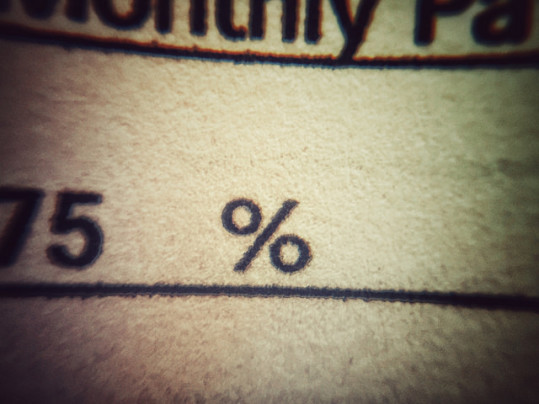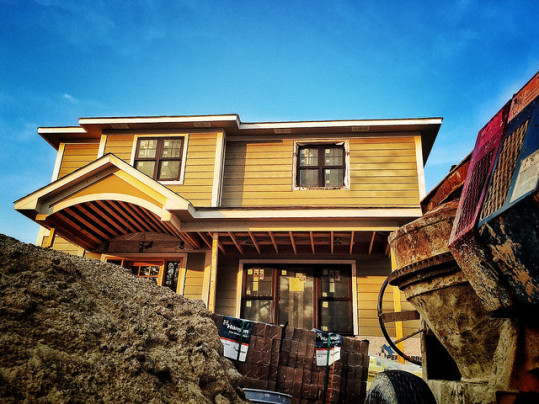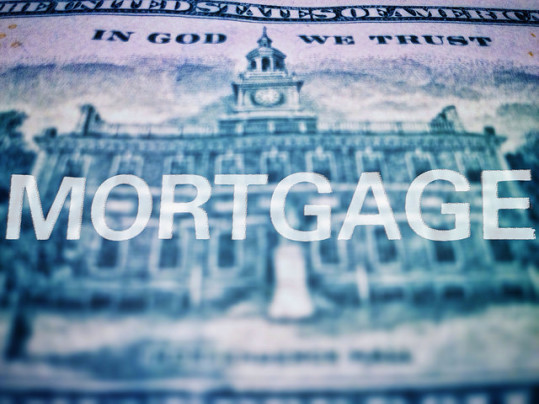According to the Mortgage Bankers Association’s Weekly Applications Survey, average mortgage rates dropped again last week, hitting their lowest point since last April. Rates were down across all loan categories, including 30-year fixed-rate loans with both conforming and jumbo balances, as well as loans backed by the Federal Housing Administration and 15-year fixed-rate mortgages. The decline spurred refinance activity, which increased 16 percent over the week before. Michael Fratantoni, MBA’s chief economist, told CNBC that the refinance rush was once again led by jumbo borrowers. “Treasury rates fell again last week, and mortgage rates fell to their lowest level in over a year, with rates on jumbo loans dropping to their lowest level since December 2012,” Fratantoni said. “As we have noted in recent weeks, borrowers with larger loans tend to be more sensitive to a drop in rates, because they stand to benefit more from refinancing.” Because of this, the average loan size for refinances set a new record at $316,000. Demand for loans to purchase homes, on the other hand, fell 4 percent from the week before, though they are now 30 percent higher than at the same time last year. The MBA’s weekly survey has been conducted since 1990 and covers 75 percent of all retail residential mortgage applications. More here.
Archive for February 2016
New Home Market Still Poised For Growth
The most recent National Association of Home Builders Housing Market Index shows builder confidence in the new-home market slipped in February. The index asks home builders for their perception of the current and upcoming market for new homes. Their answers are then scored on a scale where any number above 50 indicates that more builders view conditions as good than poor. In February, the Index fell three points to 58. David Crowe, NAHB’s chief economist, said the dip in confidence is reflective of the current economic mood in the country but that the fundamentals are still strong. “Builders are reflecting consumers’ concerns about recent negative economic trends,” Crowe said. “However, the fundamentals are in place for continued growth of the housing market. Historically low mortgage rates, steady job gains, improved household formations, and significant pent up demand all point to a gradual upward trend for housing in the year ahead.” A closer look at the survey’s individual components supports Crowe’s optimism. For example, while the components gauging current sales conditions and buyer traffic declined, the measure of sales expectations for the next six months rose one point to 65. More here.
More Mortgages Are Approved On Sunny Days
Before you can buy a home, you have to be approved to borrow the money. For the most part, whether or not you qualify for a mortgage will depend on your financial situation, income, amount of debt, credit history, etc. However, according to a new paper from the Federal Reserve Bank of Cleveland, the weather could have an effect as well. Using data from the National Oceanic and Atmospheric Administration, the paper looked at more than 2,000 counties over 12 years and discovered sunny days led to a .80 percent bump in approvals for credit applications. On the flip side, overcast weather can result in approvals dropping by 1.41 percent. Though a seemingly small amount, those percentages can amount to big numbers when looked at nationwide. According to the paper, “A rough estimate of the extra credit approved on one perfectly sunny day relative to one fully overcast day is about $150 million nationwide or $91,000 per county-day.” Of course, this is no reason to think you can make a mess of your finances as long as you apply for a loan on a nice day. Having a steady income, good credit, and some money in the bank is still going to be your best path to obtaining financing and purchasing a home. More here.
Money Keeps Middle Aged Buyers At Bay
A recent survey found that nearly 30 percent of all non-homeowners say they can’t afford a down payment. Conducted by Princeton Survey Research Associates International on behalf of Bankrate, the survey also revealed that 16 percent of respondents felt their credit wasn’t good enough to qualify for a mortgage. These are persistent concerns for Americans who don’t own or have never owned a home. Worries about money and financial qualifications can keep prospective buyers on the sidelines despite the fact that there are many programs and financing options available that are aimed at helping buyers with these exact issues. For example, depending on the type of loan, a potential home buyer may be be able to put as little as 3.5 percent down when buying a house. And surprisingly, money worries aren’t just the problem of young Americans looking to save up for their first home. In fact, the survey found more than 4-in-10 middle aged Americans don’t own a home and, among them, 31 percent cited not being able to afford a down payment as the reason. Holden Lewis, Bankrate’s senior mortgage analyst, says – for middle-aged Americans who aren’t buying – the issues are a bit more difficult than those affecting young Americans. “For people in the prime child-rearing years of 30 to 49, it’s more complicated,” Lewis says. “A lot of them have income and credit issues that might have roots in the recession.” More here.
Mortgage Rate Drop Spurs Demand
According to the Mortgage Bankers Association’s Weekly Applications Survey, average mortgage rates fell again last week. Rates were down across all loan categories including 30-year fixed-rate loans with both conforming and jumbo balances, loans backed by the Federal Housing Administration, and 15-year fixed-rate loans. The sharp drop brought rates for conforming and FHA loans to their lowest level since last spring and caused a spike in refinance activity. In fact, the Refinance Index increased 16 percent last week and pushed total mortgage application demand 9.3 percent above week-before levels. Michael Fratantoni, the MBA’s chief economist, told CNBC that much of the demand was generated by jumbo borrowers, which are those with loan balances greater than $417,000. “Jumbo borrowers are benefiting from fierce competition for these loans,” Fratantoni said. “The 30-year fixed rate for jumbo loans dropped to its lowest level since April 2013 and is now 15 basis points below the rate for conforming loans.” The MBA’s weekly survey has been conducted since 1990 and covers 75 percent of all retail residential mortgage applications. More here.
Home Sellers See Big Gains On Purchase Price
In 2015, the average home seller was able to sell their house for $20,378 more than they paid for it, according to new numbers from RealtyTrac’s Year-End U.S. Home Sales Report. That represents an 11 percent increase and the largest average price gain since 2007. Daren Blomquist, vice president at RealtyTrac, says homeowners can once again count on real estate to be a good investment. “With some local market exceptions, the 2015 home sales data paints the picture of a properly functioning U.S. housing market where homeowners can once again count on real estate as an appreciating asset – a long-touted axiom soundly debunked as ironclad truth between 2008 and 2013,” Blomquist said. “This return to consistent home price gains for sellers should reinforce confidence in real estate in 2016 and produce another year of solid sales volume as homeowners cash out their equity gains.” But the news should be encouraging, not just to move-up buyers looking to capitalize on their home’s rising value, but to anyone considering buying a home in the near future. Because the improvement marks two consecutive years of steady price gains – following six where the average home seller saw losses – prospective buyers can feel more confident that their home purchase will be a sound financial decision. More here.
Income Growth Key To Housing Sentiment
Fannie Mae’s Home Purchase Sentiment Index looks at consumers’ attitudes toward buying and selling a home, mortgage rates, household income, prices, employment and more in an effort to measure Americans’ feelings about the residential real estate market. According to the most recent release, housing optimism slipped slightly in January, falling 1.7 points from the month before. Doug Duncan, Fannie Mae’s senior vice president and chief economist, says income growth isn’t keeping up with home price increases and it’s causing affordability concerns among potential buyers. “Housing affordability is being constrained because the pace of growth in real income has not kept up with gains in real home prices as demand has grown faster than supply,” Duncan said. “On the bright side, consumers have been increasingly positive about their ability to get a mortgage, suggesting that credit tightness is not the main issue limiting housing market activity today, a feeling that we also see conveyed by lenders in our Mortgage Lender Sentiment Survey.” Duncan expects that consumers’ attitudes toward buying a house will likely remain flat until income growth picks up or there is an increase in the number of lower-priced homes available for sale. More here.







